Rebuilding Business Confidence: A Path to Nepal's Economic Development, Article of Suman Subedi
- Suman Subedi
- 2024 Jun 06 18:24

Introduction
Nepal, situated between the two giant countries of the world, possesses immense potential for economic growth and prosperity in view of availability of natural resources and geo-political significance. However, Nepal has always struggled in getting expected sustainable economic development results despite of having abundant natural resources, strategic positioning as well as diverse cultural richness.
One of the critical factors contributing to this challenge which has dragged the nation behind periodically is the fluctuating business confidence within the Nepalese economy. Business confidence, a crucial indicator of economic health, reflects entrepreneurs' and investors' sentiments regarding policy support, future prospects and economic as well as policy assurance through political stability. In recent years, Nepal has faced various socio-political and infrastructural hurdles due to liquid transitional political environment, which has leaded to the declining business confidence in the Nepalese economy. However, if strategic interventions and collective efforts are effectively formulated and implemented by all of the stakeholders including the Government, bureaucracy, the public as well as the private sector, Nepal can revive and foster business confidence, resulting a robust foundation for sustainable economic growth.
The Current Situation
In order to formulate effective strategies for regaining business confidence, it's imperative to understand all of the factors contributing to its decline. Nepal has been suffered with political instability, bureaucratic hurdles, poor infrastructure, and inconsistent as well as changing policies, all of which have backlashed the business operations and deteriorated the environment to foster more investment functions in the nation. Besides, the devastations caused by natural calamities, such as earthquake, flood have further extended the economic challenges and threatened investor’s trust and confidence.
Proper dealing with the policy paralysis
The policy paralysis is a hurdle for economic development which is generally characterized by a lack of coherent and consistent policies as per the changing business and economic environment. Our policy makers often fail to formulate effective policy and modify it quickly as per changing needs of the economy as more policies have been found implemented under hit and trial basis. Such events have been significant deterrents to business confidence in Nepal which is further explained by changing the ruling Governments in the short period. To regain trust, the government must be stable first than prioritize policy reforms aimed at streamlining bureaucratic processes, enhancing transparency, and ensuring the rule of law in the nation.
Establishment of clear and investor-friendly regulations always fosters an environment supporting to the business growth and attract foreign as well as local investments. In addition, the Government should concentrate on developing long-term economic strategies aligned with the sustainable development goals, providing clear roadmap to business fraternities for the future.
Development of Infrastructure Poor infrastructure has always been the important hurdle in the economic development of Nepal, impeding economic progress and deterring potential of opening wide area of new business avenues for investors. In order to enhance the business efficiency and competitiveness, a country must improve its transportation network, energy infrastructure, and telecommunication facilities first. Through the investments in infrastructure development projects, economic activity can be boosted by the Government and it will help to further create employment opportunities, and facilitate smoother business operations. Besides, the upgraded infrastructure enables businesses to access new markets and make them capable to grasp emerging business opportunities, increasing business confidence in the economy with the associated growth prospects.
Promoting Innovation through entrepreneurship and startups
The role of creativity and innovation is always pivotal for the dynamic and growing economy. The entrepreneurship as well as startups must be supported by the Government policies. Nepal possesses a pool of talented individuals with innovative ideas and entrepreneurial spirit, which, if nurtured with supporting policies, can drive for great economic transformation. The Government should implement policies to support startups, provide access to funding and mentorship programs, and facilitate for the commercialization of innovative products and technologies. By adopting the culture of entrepreneurship, Nepal can unleash its potential as a hub for innovation and creativity, attracting both domestic as well as foreign investments, which in turn also contributes in the revitalization of the business confidence.
Fighting with the bureaucratic hurdle and corruption
The bureaucratic hurdle and corruption have always remained significant drawback in Nepal, creating distrust in government institutions and hampering business confidence. In order to restore investors faith in the economy, simplifying and streamlining governance mechanisms, enhancing transparency and accountability and combating with all forms of corruption are pretty much imperative.
The Government must enforce strict anti-corruption laws and measures, prosecute corrupt individuals, and promote accountability at all levels of administration. The creation of business environment characterized by integrity and fairness, the confidence among investors can be restored and pave the correct way for sustainable economic growth of the nation. We must stand in top of the list for nations with ease of doing or establishing new business which we are lacking far behind due to corruption and administrative hurdles in the bureaucracy.
Development of Human Capital
We must invest in human resources in order to drive economic growth and fostering creativity and innovation. Our education system should link with the global job market. Nepal must prioritize in providing skill based education to get higher rate of employment. Besides, we should work in the production of the dynamic workforce with the capabilities required to thrive and be fitted in the present rapidly changing global economy. By improving access to quality education, vocational training, and lifelong learning opportunities, the country can unlock the potential of its human resources and address the productivity across various sectors by increasing the employment rate. The availability of skilled and knowledgeable workforce shall not only attract new investments but also flourish entrepreneurship and innovation through various startups and selfemployment projects, further fostering business confidence in the economy.
Capitalizing the geopolitical significance
Nepal's strategic location between two economic giants, India and China, offers immense potential for development. This geographical location can become a plus point if we can turn our nation as a business bridge between the two economic giants. By strengthening trade ties, enhancing connectivity, and promoting cross-border investments, Nepal can leverage its geographical advantage to stimulate economic growth and development. On the other hand, the country's large natural resources, rich biodiversity and cultural heritage, also provide strong foundation for sustainable development if handled properly.
By promoting renewable energy, eco-tourism, and adopting green technologies, Nepal can mark itself as a leader in sustainable development and attract numbers of socially responsible investors. Adopting sustainable practices not only mitigates environmental risks but also improves the country's global reputation and viewpoint of the investors, rebuilding confidence in its economic prospects. Active participations in the regional forums and initiatives will enable Nepal to tap in the larger markets, diversify and expand its export base, and attract new investments in key sectors such as infrastructure, energy, and manufacturing.
Through collaborative efforts with all type of investors, Nepal can enhance its economic activities and regain business confidence which can be instrumental to thrive in the rapidly increasing current interconnected world of business.
Conclusion
Regaining business confidence back is very much essential for unleashing Nepal's economic potential and further accommodating and flourishing sustainable development practices. A positive and favorable environment fostering business growth and investments can be created only by effectively addressing the key issues of the present economic distress such as policy paralysis, poor infrastructure, hurdles in the bureaucracy, corruption, and skill gaps in the available human resources.
Encouraging creativity and innovations, fostering entrepreneurship and startups, promoting sustainable practices, and facilitating regional cooperation are instrumental to rebuild the lost business confidence in the Nepalese economy. With the sincere efforts from the Government, private sector, and civil society, Nepal can surely comeback on the right path of economic prosperity, ensuring better future with plenty of business opportunities in the upcoming periods.
Also Read this Article
हाइपोथिकेशन गरिएका सुरक्षणबाट कर्जा नउठेको भन्दै बैंकरलाई थुन्नु अव्यवाहारिक, सुमन सुवेदीको लेख
(Former banker Subedi is a trainer of Nepal Rastra Bank's financial literacy campaign. Subedi, who has been teaching at various campuses of Tribhuvan University. He has 17 years of banking experience.)

![$adHeader[0]['title']](https://bfisnews.com/images/bigyapan/1760080292_64756700.gif)
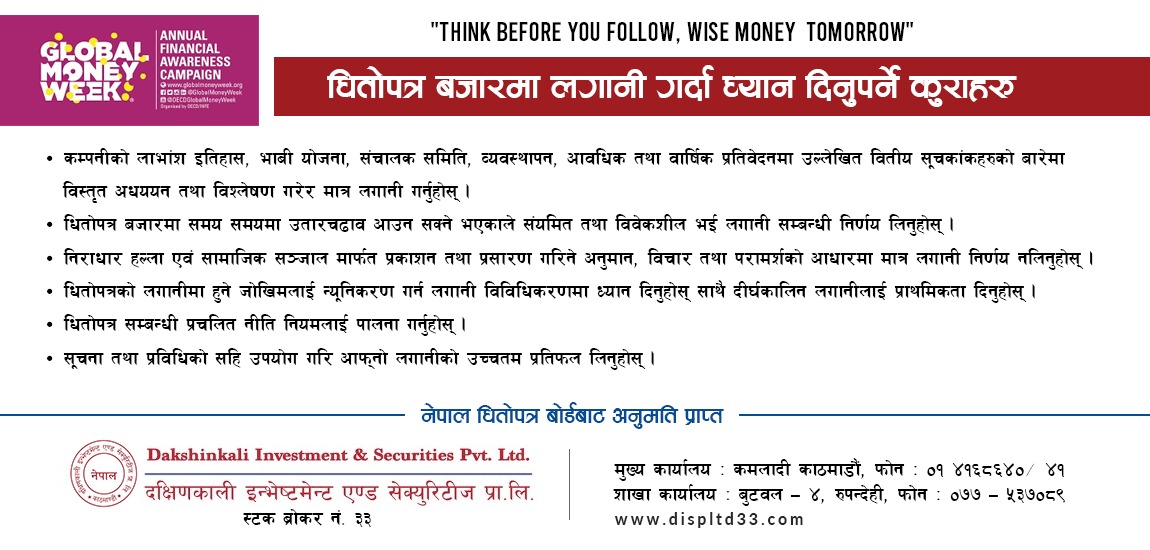












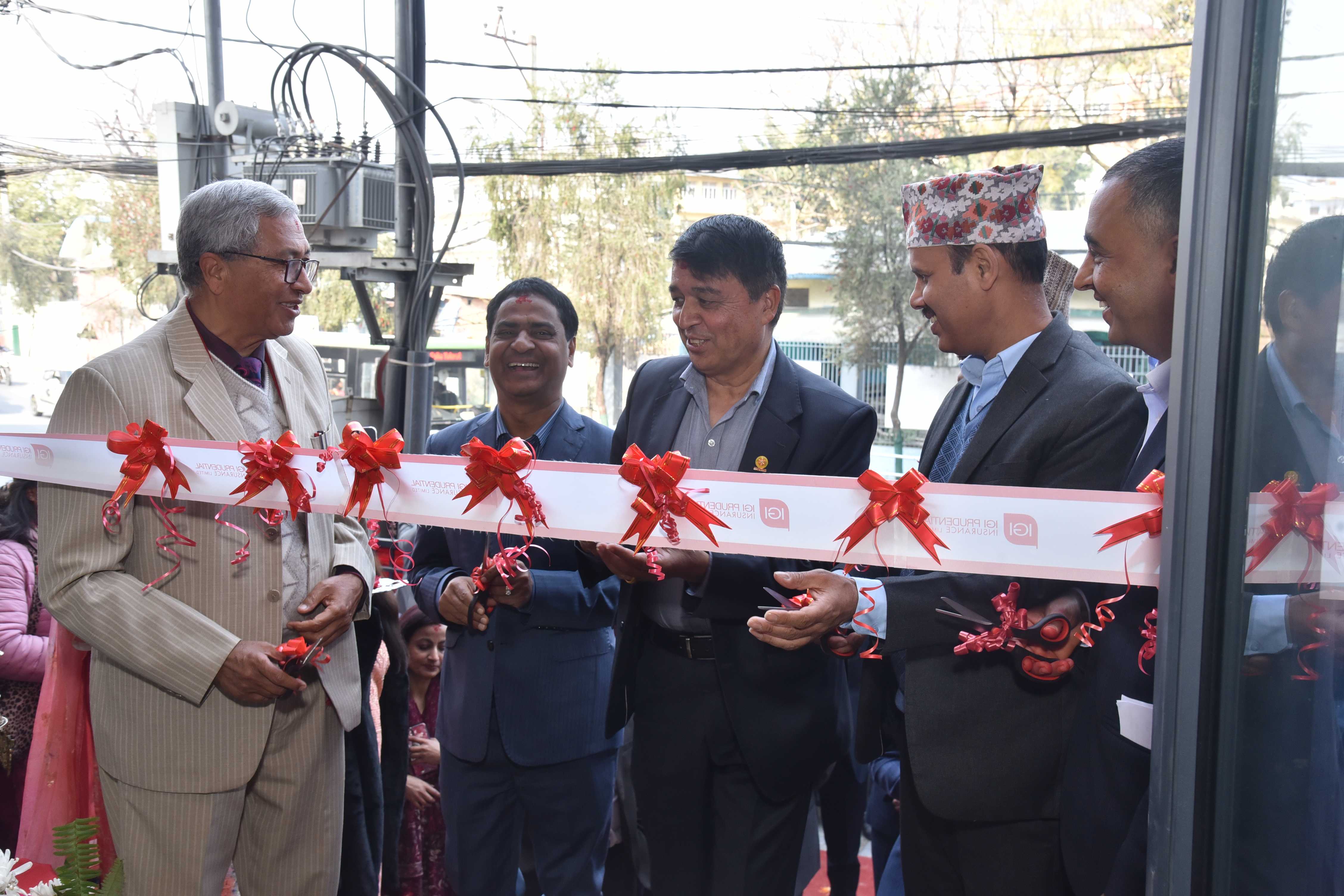
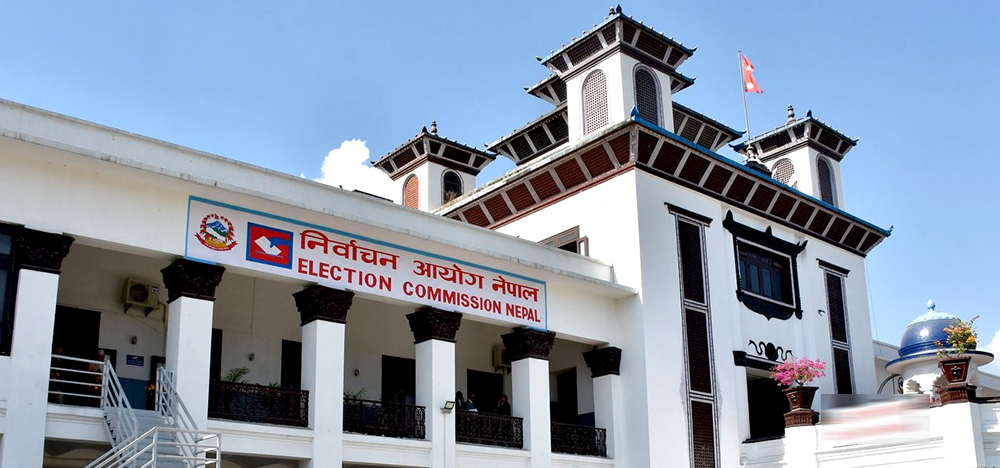
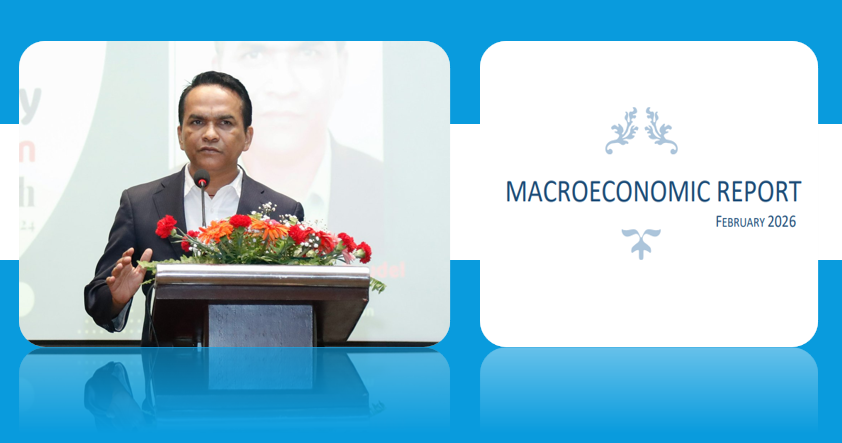
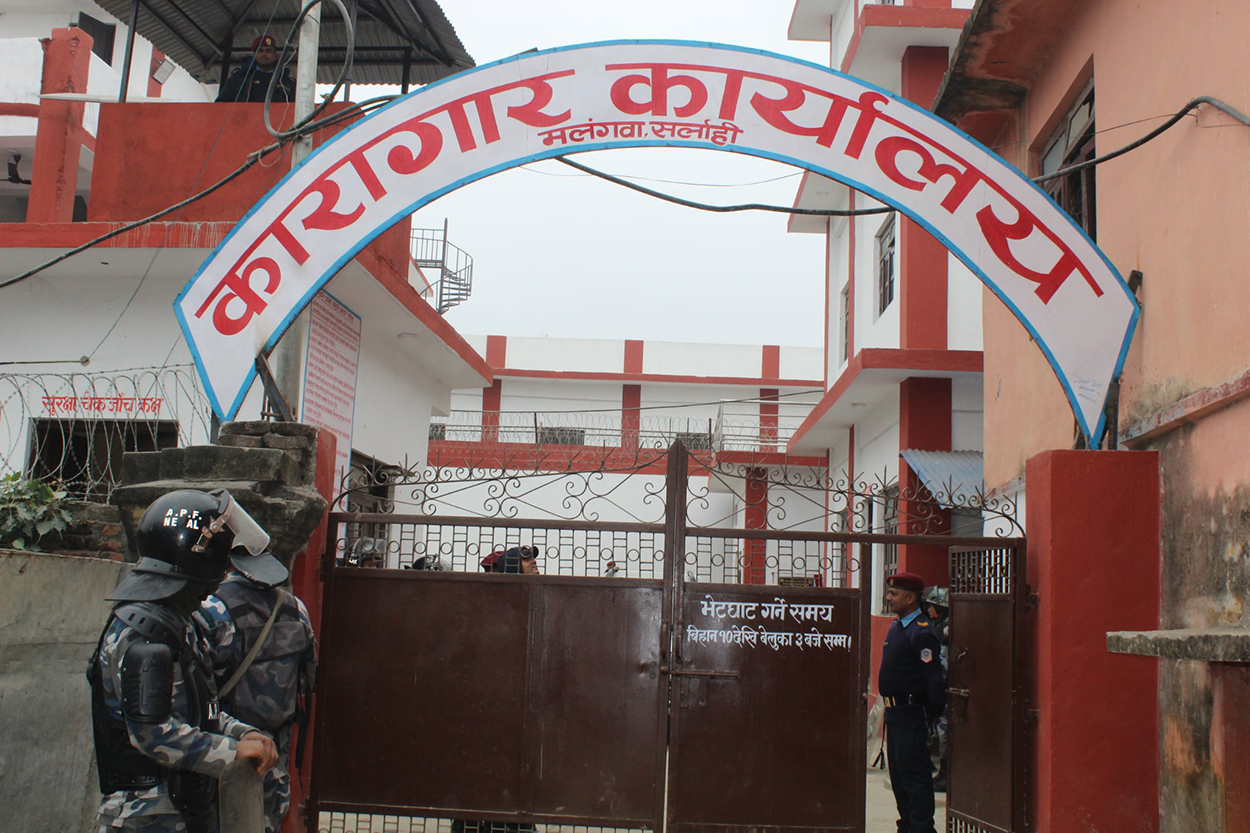
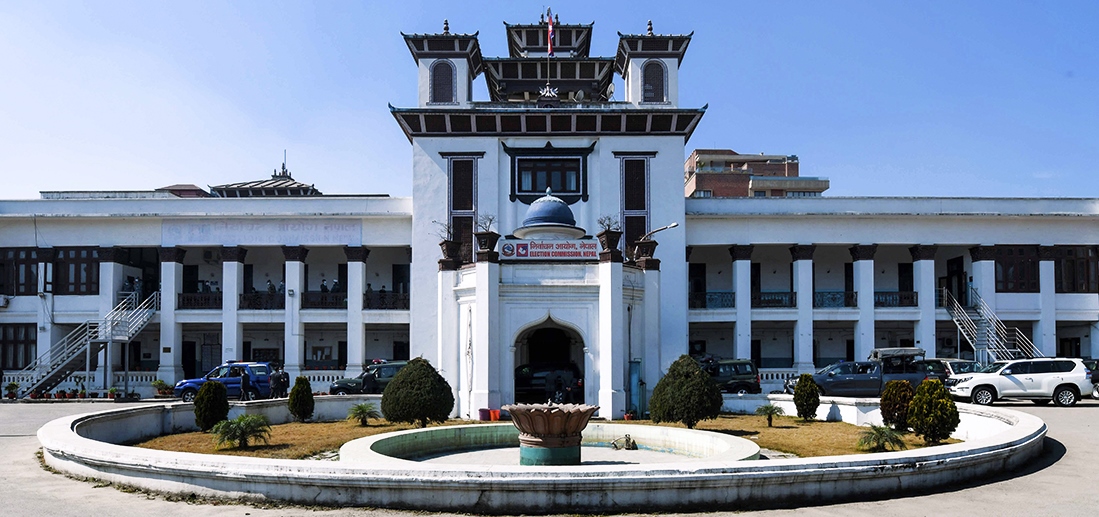


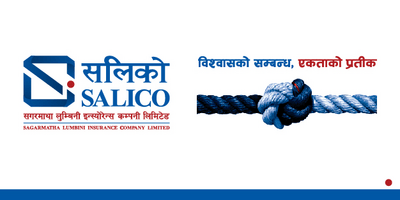



प्रतिक्रिया